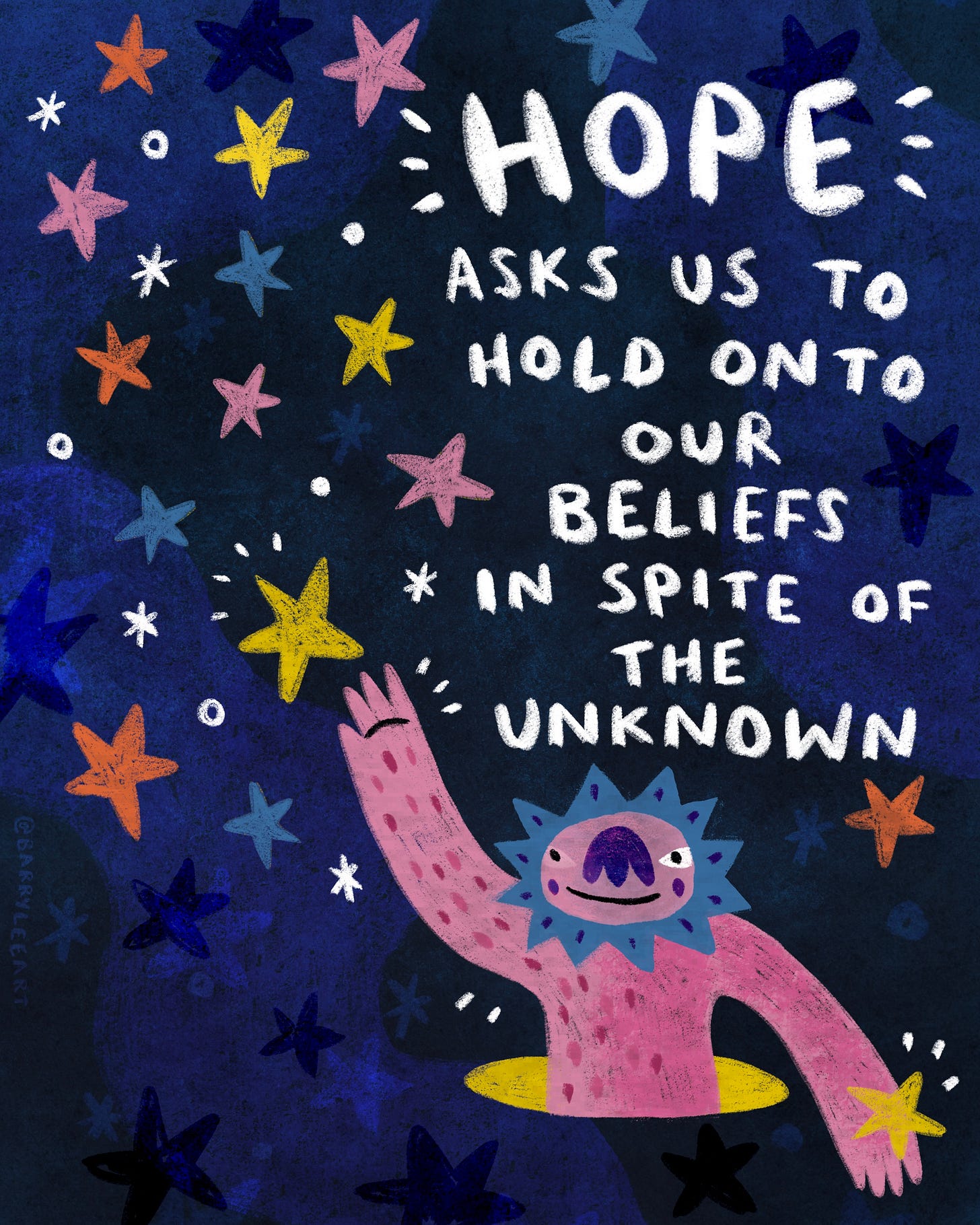
I’ve been concocting a piece about eugenics, and of course, as I write about it, more examples continue to show up in real time for me to add. While writing that newsletter, I have been in the midst of juggling some freelance projects. I am working on something so radically different than anything I have ever made, and it’s been bringing up a lot for me. There have been many pitfalls in this project, and earlier last week, I finally just had to say, “I don’t know how to move forward with this.”
Being in the “I don’t know” is extremely common for me. Being Disabled has continued to prepare me for the unknown ever since I was young. Part of it has brought on genuine preparation, while another part is just anxiety, which can keep me on my toes. Regardless, there was hope.
Hope can be misused, much like gratitude, to bypass turmoil. However, I believe that hope asks us to constantly sit in discomfort to resolve whatever we wish. Hope can also be a motivator for us to advocate for our needs. I see it as the energy source to push us forward. I was pretty scared to just admit I really didn’t know how to move forward, but there was hope in me enough to say that I needed support.
Freelancing allows me to be a nomad when it comes to various workspaces. I see how these workspaces truly expect their workers to figure things out without diving into their resources first. Growing up, I learned a lot about using my resources to help me attain greater accessibility. At times I took those resources for granted, but the resources were there largely in part due to my Mom and other parents of Disabled children advocating for our needs. When tackling this project, I reached out to folks in my community who I felt would have greater knowledge regarding what I was getting into.
Communicating my uncertainty though after trying everything I could to resolve the troubles I was navigating with the project, seemed to signal to my client to lean into their own resources. I feel that capitalism can make us nervous to admit we don’t know something, that it asks us to have everything figured out as individuals versus leaning on our resources as an immediate response instead of an emergency one. Thankfully, the project got resolved without me having to exert any more than I was already exerting.
Advocating for ourselves won’t always give us the result we wish, and yet we can always lean on the energy source of hope to drive us to where we want to be.
What is your relationship with hope?
Have there been times where you’ve used hope to bypass things in your life?
How can hope be an energy source for you in difficult times?





I like your idea of hope as an energy source. I myself have a very complex relationship to hope, but ultimately I think it can be a lifeline and commitment to our future selves when used skillfully. Wrote about it recently here: https://open.substack.com/pub/chronicallythinking/p/is-hope-an-addiction?r=28zzav&utm_medium=ios
Disabled hope is different!! We often don't have the option to use hope in order to bypass reality--or if we do, we don't have that option for long, reality catches up with us.
I used to think hope HAD to be delusional, but through many talks with loved ones, hope is the most rational framework we have. Why else would we do what we did if there wasn't a spark, a desire, a need for things to be different?